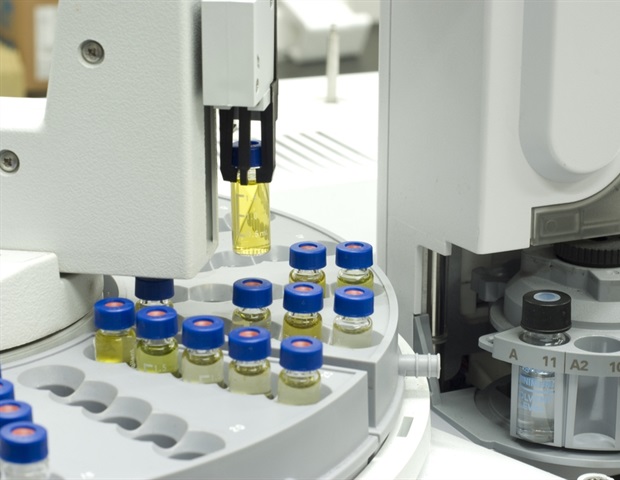[ad_1]

Laura-Isobel McCall, Ph.D., and Zhibo Yang, Ph.D., co-principal investigators and affiliate professors of chemistry and biochemistry within the Dodge Household School of Arts and Sciences on the College of Oklahoma, have been awarded a prestigious R01 grant from the Nationwide Institutes of Well being for his or her undertaking, “Novel single-cell mass spectrometry to evaluate the position of intracellular drug focus and metabolism in antimicrobial therapy failure.”
Our undertaking builds upon Dr. Yang’s analysis that exhibits variations in chemotherapy medicine inside particular person most cancers cells. Utilizing his methods with single-cell mass spectrometry, if we discover that cells with persistent pathogens even have much less intracellular drug ranges, then we might clarify antimicrobial therapy failure.”
Laura-Isobel McCall, Ph.D., affiliate professor of chemistry and biochemistry within the Dodge Household School of Arts and Sciences, College of Oklahoma
McCall’s lab, which works on parasitic infections, will collaborate with Carolyn Ibberson, Ph.D., assistant professor of microbiology within the Dodge Household School of Arts and Sciences, and James Papin, Ph.D., affiliate professor of pathology within the OU School of Medication. Ibberson’s lab will concentrate on bacterial infections whereas Papin’s will study viral infections and concentrate on PAXLOVID, a COVID-19 therapy.
“My lab focuses on mass spectrometry, which is a really delicate method used to detect and establish molecules utilizing hint quantities of samples,” Yang mentioned. “With this device, we will study particular person cells which are lower than 10 micrometers in measurement to find out their resistance to medicine used to struggle parasites, micro organism and viruses.”
This Nationwide Institutes of Well being grant is predicted to offer $2.65 million in funding over 5 years.
“I believe this funding acknowledges how thrilling our thought is, and what a huge impact our undertaking can have,” McCall mentioned. “It additionally acknowledges that our strategy is a brand new mind-set about infectious illness therapy failures. If our speculation is right, it might change how we handle and deal with infections and what we do about antimicrobial therapy failure.”
[ad_2]
